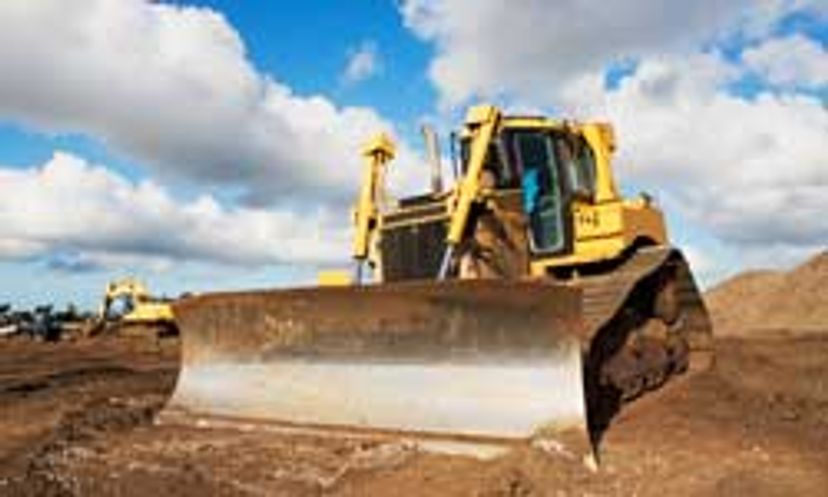
About This Quiz
Hydraulic equipment is amazing in its strength and agility. From common backyard machines to the huge machines you see on construction sites, hydraulics make quick work of even the most difficult tasks. How much do you know about hydraulic machines?The basic idea behind any hydraulic system is very simple: Force that is applied at one point is transmitted to another point using an incompressible fluid. The fluid is almost always an oil of some sort. The force is almost always multiplied in the process.
It's important that a hydraulic system contains no air bubbles. You may have heard about the need to "bleed the air out of the brake lines" of your car. If there is an air bubble in the system, then the force applied to the first piston gets used compressing the air in the bubble rather than moving the second piston, which has a big effect on the efficiency of the system.
The brakes in your car are a good example of a basic piston-driven hydraulic system. When you depress the brake pedal in your car, it's pushing on the piston in the brake's master cylinder. Four slave pistons, one at each wheel, actuate to press the brake pads against the brake rotor to stop the car. (Actually, in almost all cars on the road today, two master cylinders are driving two slave cylinders each. That way, if one of the master cylinders has a problem or springs a leak, you can still stop the car.)
Advertisement
The great thing about hydraulic systems is that the pipe connecting the two cylinders can be any length and shape, allowing it to snake through all sorts of things separating the two pistons. The pipe can also fork, so that one master cylinder can drive more than one slave cylinder, if desired.
On any construction site, you see hydraulically-operated machinery in the form of bulldozers, backhoes, shovels, loaders, fork lifts and cranes. Hydraulics operate the control surfaces on any large airplane. You see hydraulics at car service centers lifting the cars so that mechanics can work underneath them, and many elevators are hydraulically-operated using the same technique. Even the brakes in your car use hydraulics!
The neat thing about hydraulic systems is that it is very easy to add force multiplication (or division) to the system. If you have read How a Block and Tackle Works or How Gears Work, then you know that trading force for distance is very common in mechanical systems.
Advertisement
Big hydraulic machines usually have large external reservoirs to hold the difference in the volume of oil displaced by the two sides of any cylinder.
One of the best places to get up close and personal with large hydraulic machines is at a construction site. The thing that is most amazing about these machines is their sheer size.
Big hydraulic machines usually have large appetites for hydraulic oil. If there are six or eight large hydraulic cylinders used to operate the machine, 100 gallons is not uncommon.
Advertisement